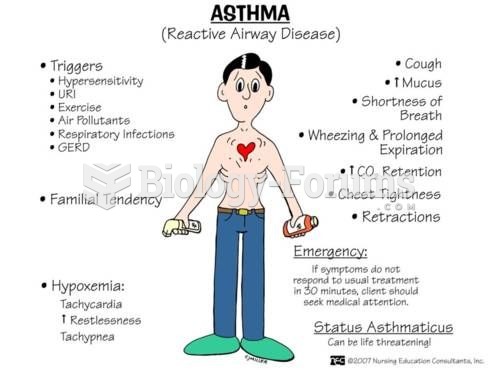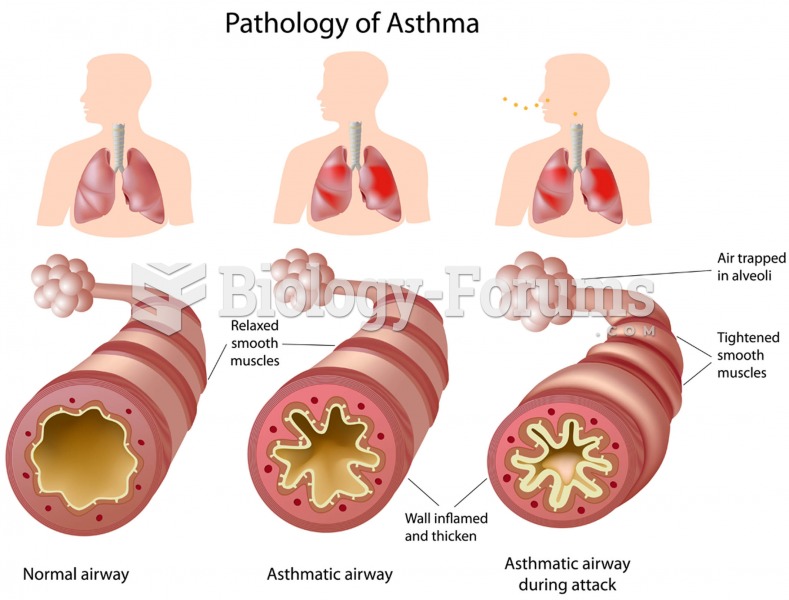Answer to Question 1
Correct Answer: 1,2,3
Rationale 1: Albuterol activates the sympathetic nervous system, which results in bronchodilation but can also cause restlessness.
Rationale 2: Albuterol activates the sympathetic nervous system, which results in bronchodilation but can also cause tremors.
Rationale 3: Albuterol activates the sympathetic nervous system, which results in bronchodilation but can also cause nervousness.
Rationale 4: Albuterol would be used cautiously in any client with a history of prolonged QT interval, coronary artery disease, or high blood pressure. However, this is not a side effect the client would be warned to expect.
Rationale 5: Hypertensive crisis would only occur if the client is taking monoamine oxidase inhibitors (MAOIs) at the same time as albuterol.
Global Rationale: Serious adverse effects from inhaled albuterol are uncommon when taken as directed; however, PO forms cause more sympathomimetic adverse effects. Some patients experience palpitations, headaches, throat irritation, tremor, nervousness, restlessness, and tachycardia. Less common adverse reactions include insomnia and dry mouth. Uncommon adverse effects include chest pain, paradoxical bronchospasm, and allergic reactions.
Albuterol would be used cautiously in any client with a history of prolonged QT interval, coronary artery disease, or high blood pressure. However, this is not a side effect the client would be warned to expect. Hypertensive crisis would only occur if the client is taking monoamine oxidase inhibitors (MAOIs) at the same time as albuterol.
Answer to Question 2
Correct Answer: 1,2,3
Rationale 1: Budesonide is an inhaled corticosteroid. It is an anti-inflammatory medication used to decrease inflammation of the airways, resulting in long-term control of asthma symptoms.
Rationale 2: Nedocromil is a mast cell stabilizer. It is an anti-inflammatory medication used to decrease inflammation of the airways, resulting in long-term control of asthma symptoms.
Rationale 3: Zafirlukast is a leukotriene modifier. It is an anti-inflammatory medication used to decrease inflammation of the airways, resulting in long-term control of asthma symptoms.
Rationale 4: Albuterol is used for acute bronchospasm.
Rationale 5: Ipratropium is an anticholinergic drug. It is a rapid-acting bronchodilator that can be used for acute bronchospasm.
Global Rationale: Long-acting medications such as budesonide, nedocromil, and zafirlukast take longer to act and should not be used to terminate acute bronchospasms. They are useful for the prophylaxis of persistent, chronic asthma. Albuterol and ipratropium are used for acute bronchospasm.







